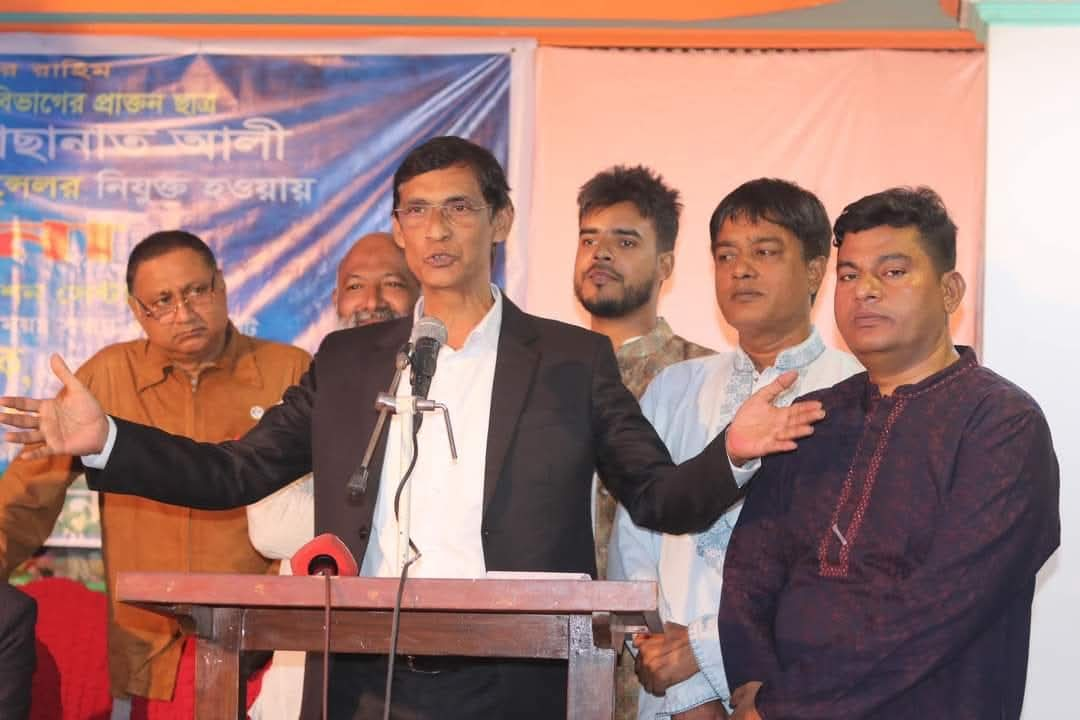Staff Correspondent
Published:2025-08-25 12:56:06 BdST
Shipon emerges as a principle voice in Magura's politics
In the turbulent currents of Bangladeshi politics, few figures stand out for integrity, courage, and commitment to democratic ideals rather than wealth or privilege. One such leader is Mirza Walid Hossain Shipon, whose political journey spans more than four decades—from student movements in the 1980s to his current roles as organizer, economist, and grassroots leader.
His resilience and principles have made him a central figure in Magura-1, where many view him as a credible candidate ahead of the 13th National Parliament elections.
Shipon’s political awakening occurred during the authoritarian rule of Hussain Muhammad Ershad, when students nationwide mobilized against military dictatorship.
Inspired by the ideals of President Ziaur Rahman and the leadership of Begum Khaleda Zia, he entered politics in 1984 through the Jatiyatabadi Chhatra Dal. Within the same year, he was elected Senior Vice President of the Rajshahi New Government Degree College unit and later became Publicity Secretary of the district branch. His rise reflected both his organizational skills and his ability to rally energetic youth demanding change.
At the Islamic University in Kushtia, Shipon emerged as a founding leader of the Chhatra Dal unit in 1986, serving as its first General Secretary. His activism came at a steep cost: in 1987, he and 20 others were expelled for organizing demonstrations, constructing the campus Shaheed Minar, and strengthening resistance politics. The move, intended to end his political career, instead cemented his reputation as a leader willing to sacrifice personal comfort for collective freedom.
The fall of the Ershad regime in 1990 brought vindication. Expulsion orders were revoked, allowing Shipon and his peers to return. He was elected President of the Islamic University Chhatra Dal in 1991 and re-elected in 1994—a rare feat that demonstrated his ability to unite students under the banner of justice and democracy.
Shipon later transitioned to national politics, serving in central committees of BNP’s major associate bodies. He held roles including Joint Secretary of the Chhatra Dal, member of Jubo Dal, and International Affairs Secretary of Swechchhasebak Dal, strengthening ties with expatriate communities and international forums. His work extended the BNP’s organizational reach globally, ensuring the party’s presence in important international conversations.
Beyond party politics, Shipon has remained active in academic and professional platforms. As President of the Islamic University Alumni Association and the Bangladesh Jubo Arthropod Forum, he has promoted research, policy debate, and intellectual engagement, emphasizing that politics should offer long-term solutions, not just immediate remedies.
Colleagues and constituents describe Shipon as honest, straightforward, and uncompromising in his stance against corruption and injustice. In an era where politics is often dominated by patronage and personal gain, he has earned the rare title of a “clean leader.” Villagers and market-goers in Magura frequently cite his accessibility and refusal to treat politics as a business.
With elections approaching, residents of Magura-1 express frustration with entrenched family dynasties and traditional power brokers. Farmers, small traders, and youth are calling for leadership that understands their struggles with inflation, unemployment, and inadequate infrastructure. Many sees Shipon as a credible alternative: a staunch follower of Zia’s ideology and loyal to Khaleda Zia and Tarique Rahman, with the experience, integrity, and grassroots connection to represent them effectively.
Bangladesh faces economic instability, high unemployment, and deep political polarization. In such a climate, the demand for principled leaders is strong. Shipon’s supporters argue that his combination of grassroots activism, organizational skill, and economic vision equips him to bridge the gap between public grievances and national policy.
Critics may dismiss him as idealistic, but his consistency in resisting autocracy, rejecting corruption, and defending democratic ideals speaks otherwise.
The story of Mirza Walid Hossain Shipon is more than a personal journey; it reflects a generation of student activists who risked their futures to oppose dictatorship and demand freedom. From expulsion under a military regime to repeated election by peers, from campus protests to national organizing, his life exemplifies perseverance and conviction.
As the 13th National Parliament elections draw near, eyes in Magura and beyond will be on him. Whether he secures a parliamentary seat or not, Shipon has already cemented his place in Bangladesh’s democratic history. For many in Magura, one fact is clear: the demand for change is real and they see Mirza Walid Hossain Shipon as the leader capable of delivering it.
Unauthorized use or reproduction of The Finance Today content for commercial purposes is strictly prohibited.


